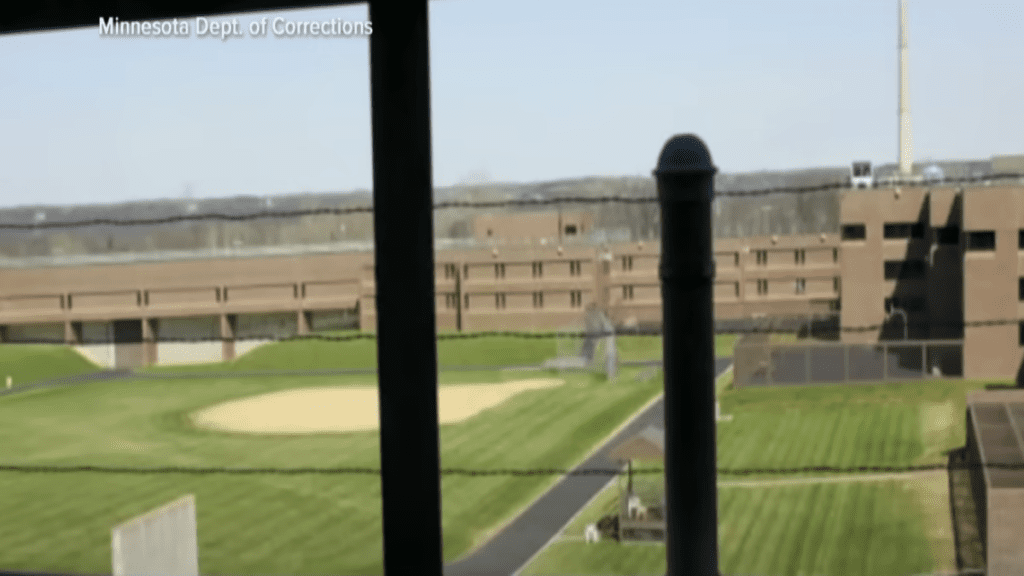Gregory M. Erickson, the legal representative for Derek Chauvin, strongly criticized the lack of transparency maintained by federal prison authorities in the aftermath of Chauvin’s recent stabbing incident. This condemnation came to light a day after Chauvin was attacked by a fellow inmate at the Federal Correctional Institution in Tucson, Arizona—a facility plagued by security issues and understaffing.

Insiders revealed on Friday that Derek Chauvin suffered severe injuries in the stabbing. The identity of the source remained confidential due to a lack of authorization to publicly disclose details. On Saturday, Brian Evans, spokesperson for the Minnesota attorney general’s office, conveyed that Derek Chauvin is expected to survive.
Erickson highlighted the frustration experienced by Derek Chauvin’s family and legal team in obtaining information from Bureau of Prisons officials. He criticized the family’s reliance on news reports to gauge Chauvin’s condition, emphasizing the lack of updates despite repeated inquiries to the prison.

Describing the dearth of communication as “outrageous,” Erickson argued that such breakdowns in communication exemplify institutional inefficiency, contributing to incidents like Derek Chauvin’s assault. He raised longstanding concerns about federal prison authorities withholding information from the families of incarcerated individuals facing serious injuries or illnesses.
The Associated Press had previously exposed instances where the Bureau of Prisons disregarded internal guidelines, failing to inform families of inmates severely affected by COVID-19 during the pandemic. This issue led to legislative action in the form of a bill introduced in the U.S. Senate, aiming to compel the Justice Department to establish notification protocols for families in such circumstances.
Erickson criticized the lack of information provided to Chauvin’s family members responsible for medical decisions and emergency contacts. He denounced the prison’s procedural deficiencies and lack of institutional control following the stabbing.

As of Saturday evening, a representative for the Bureau of Prisons had not responded to requests for comment. The Bureau confirmed an assault at the Arizona facility, stating that staff took “life-saving measures” before transferring the injured inmate to a hospital. Privacy and safety concerns prevented the Bureau from disclosing the victim’s identity or providing a medical status.
Prosecutors who secured Chauvin’s second-degree murder conviction in 2021 expressed dismay at the violence he faced in federal custody. Terrence Floyd, George Floyd’s brother, expressed a reluctance for anyone to endure violence in prison, acknowledging a sense of numbness upon hearing the news.
Chauvin’s stabbing marks the second high-profile assault on a federal prisoner in the past five months. In July, disgraced sports doctor Larry Nassar was stabbed by a fellow inmate at a federal penitentiary in Florida.
Chauvin, 47, moved to FCI Tucson from a high-security Minnesota state prison in August 2022, serving concurrent federal and state sentences. Eric Nelson, another of Chauvin’s legal counsels, had advocated for segregating him from the general inmate population, anticipating he would be a target. Chauvin had spent much of his time in Minnesota in solitary confinement for protection.
The U.S. Supreme Court recently rejected Chauvin’s appeal of his murder conviction. Simultaneously, he seeks to overturn his federal guilty plea, claiming new evidence absolves him of causing Floyd’s death.
George Floyd, a Black man, died on May 25, 2020, under Chauvin’s knee, sparking global protests against police brutality and racial inequality.
Chauvin’s stabbing adds to the challenges faced by the federal Bureau of Prisons, already under scrutiny since Jeffrey Epstein’s jail suicide in 2019, Nassar’s stabbing, and the Unabomber Ted Kaczynski’s suicide in June.

In November 2022, an inmate at the Tucson facility’s low-security prison camp attempted to shoot a visitor, resulting in no injuries due to a misfired weapon.
Ongoing investigations by the AP continue to reveal undisclosed deficiencies within the Bureau of Prisons, a significant law enforcement agency under the Justice Department, boasting over 30,000 personnel, 158,000 inmates, and an annual budget around $8 billion.
Colette Peters, Bureau of Prisons Director since last year, aims to reform the agency by addressing hiring practices and fostering transparency. Peters articulated the agency’s mission as one to “make good neighbors, not good inmates.”






